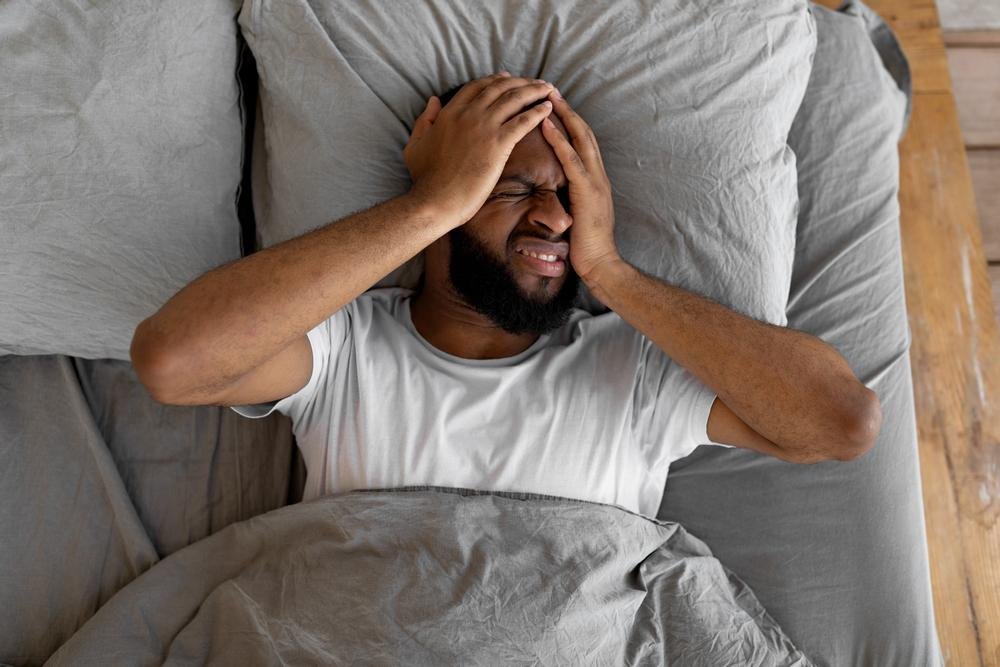There’s nothing like waking up in the morning, opening your eyes, and feeling a surge of pain enveloping your head. Headaches are a recurring condition in society and mostly affect women.
There are various triggering factors for this condition, such as drug use and stress. insomnia diseasealcohol use and premenstrual periods.
But some of these triggers, particularly those related to habits and routines, can improve and even extinguish morning headache episodes, and can be changed.
See what the main factors are and how you can improve your sleep routine by avoiding terrible headache episodes.
What is a headache?
Hangovers, migraines, headaches, clusters, throbbing, headaches are classified according to their intensity, location, duration and possible exacerbations.
Basically, it is a neurological condition where there is contraction of nerves and blood vessels in the skull. This painful condition can be associated with sleep disorders, diet, drug use, genetic compatibility, among other factors.
Why do I have a headache in the morning?
According to some studies, when our brain enters the waking state during the circadian cycle, some pain receptors become more sensitive and trigger headaches depending on the person’s condition.
Although the causes are not fully known, it is known that sleep disorders, mood disorders, stressful routines, musculoskeletal problems and even the position on the bed or pillow can cause headaches in the morning.
The most common triggers for this condition are:
insomnia disease: A few hours of sleep, or even multiple awakenings during the night, has been shown to be a risk factor for the development of headache attacks. Sleep quality affects the normal physiological states of the body and triggers headaches.
snoring and apnea: It is not known exactly how pauses in breathing and snoring contribute to the onset of headache. However, many people who suffer from the above-mentioned conditions report experiencing morning migraine attacks. These sleep disorders are also thought to trigger other comorbidities such as depression and insomnia.
depression and anxiety: These situations can change sleeping habits such as being always on the alert, causing insomnia, or even in a state of excessive sleepiness, another trigger factor in itself, where the person spends a lot of time asleep.
Temporomandibular joint (TMJ) disorders: The pain caused by this condition and the stress on the joint facilitate the stimulation of the vessels and nerves in the brain, causing headaches.
bruxism: Excessive contraction of the jaw causes pain and grinding of teeth. In addition to being a sleep disorder, bruxism also causes musculoskeletal problems.
Alcoholic beverages and drugs: Excessive use of alcohol or certain drugs interferes with the physiological state of the body. For example, drinking alcohol can cause dehydration, which is a common trigger for headaches.
How can I prevent headaches?
It is important to note whether the headaches are recurrent. If you find that these are occurring too often, it is ideal to have a medical consultation to evaluate the factors involved.
For example, you can have a polysomnography test to find out whether you have a quality sleep or whether you have a sleep disorder that you are not aware of. From the results, you can change sleep habits that will prevent further headache episodes.
Adopting sleep hygiene habits such as going to bed and getting up at the same time, avoiding screen use at least an hour before going to bed, and falling asleep in noisy and dark environments can be a big differentiating factor in the treatment of sleep disorders. .
In addition, physical exercises and a healthy diet can also be an excellent tool. These habits will help reduce stress, improve muscle tension, and regulate hormones without the need for medication.
Always seek medical advice so that you can get the best treatment and pass your mornings without pain and discomfort.
Source: Tec Mundo
I am Bret Jackson, a professional journalist and author for Gadget Onus, where I specialize in writing about the gaming industry. With over 6 years of experience in my field, I have built up an extensive portfolio that ranges from reviews to interviews with top figures within the industry. My work has been featured on various news sites, providing readers with insightful analysis regarding the current state of gaming culture.












